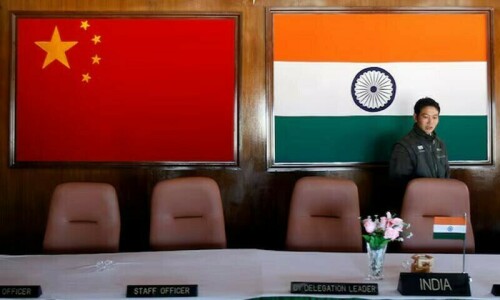In an era where global economies are increasingly interconnected, the efficiency of tax systems has become paramount.
As governments worldwide grapple with the complexities of modern taxation, integrating tax departments is crucial not only as a bureaucratic reform but also as a strategic approach to enhance transparency, streamline processes, and foster economic growth.
The latest initiatives highlight a significant change in states’ approach to taxation, emphasising the importance of a well-coordinated tax administration in reducing compliance costs, government revenue collection costs, fraud, and administrative burdens, ultimately supporting sustainable development and ensuring the “the one-stop shop” concept.
Integration results in enhanced economies of scale, eliminating duplicate functions (eg human resources, finance, and information technology) and establishing basic data-sharing and operational coordination. Despite the evident benefits, Pakistan has not fully embraced this integration, despite the echoed calls for such reforms. Integration at the provincial level, especially in Balochistan, is urgently needed due to its heavy reliance on the Federal government for revenue.
Multiple entities handle Balochistan’s revenue collection. Major contributors include the Board of Revenue, Excise, Taxation and Anti-Narcotics Department, and the Balochistan Revenue Authority. At the same time, the Energy Department and Transport Department contribute on a smaller scale, highlighting the fragmented nature of its tax administration.
In this era of AI and advanced technology, consolidating tax entities could yield benefits that were unattainable in the 1970s
The Board of Revenue Balochistan was historically established in July 1972 following the dissolution of the one-unit system in Pakistan. Excise, taxation, and Anti-Narcotics Department, Mines and Minerals Department, Transport Department, and Zakat Department were under the Board of Revenue and were gradually separated. In today’s era of artificial intelligence and advanced technology, consolidating these departments could yield unattainable benefits in the 1970s due to the lack of sophisticated data analysis capabilities.
The provincial revenue authorities depend heavily on Pakistan Revenue Automation Limited (PRAL), a Federal Board of Revenue (FBR) subsidiary, for revenue collection and management. To gain more control over their resources, provinces should develop their own data banks, empowering them to manage their resources independently.
Reviewing regional examples, India’s adoption of the goods and services tax in 2017 is a good model for integrating its tax and revenue departments. This reform replaced a convoluted system of multiple indirect taxes at the central and state levels with a single, unified tax system, simplifying the tax structure significantly.
Moreover, India has integrated various revenue-generating bodies under digital platforms like the Goods and Services Tax Network, leading to better data sharing, reduced redundancy, and increased tax collection and compliance efficiency.
Similarly, Bangladesh has been working on integrating its customs, value-added tax, and income tax departments under its National Board of Revenue since 2016. This integration effort has improved coordination between departments and simplified the tax process for both businesses and individuals, reducing the burden of dealing with multiple revenue agencies.
In 2018, in a bid to boost revenues, the Khyber Pakhtunkhwa provincial government agreed in principle to merge the Excise and Taxation Department with the KP Revenue Authority. This move was part of a broader strategy to fortify the provincial revenue system, aligning with the government’s objectives. In the short term, high tax potential should be allocated to the revenue agency that demonstrates excellence in all aspects.
In this regard, agriculture income tax and urban immovable property tax have not been fully realised despite being recognised as high-potential revenue sources in the province. Empirical studies show that the collection of agricultural income tax and land-based tax amounted to only about Rs25 million per year in 2018 and 2019. This is primarily attributed to very low rates compared to other provinces and substantial exemptions, particularly in the unirrigated areas of Balochistan.
The government allocated Rs21 billion for agriculture development over the last five years (2015-2020), amounting to Rs4bn annually. In contrast, the annual subsidy allocation on agricultural tube wells amounts to Rs23bn. This imbalanced budgetary allocation towards subsidies burdens the government and society and has adverse impacts on the environment.
Moreover, the low revenue generated from the urban immovable property tax can be attributed to rapid urbanisation and the significant increase in capital and rental values of urban properties. This low revenue is primarily caused by exemptions, undervaluation of property value, rate differentials, and ineffective administration, all of which contribute to encouraging tax evasion.
In conclusion, this initiative is a crucial test case for integrating provincial revenue departments into a unified authority, laying the foundation for comprehensive integration.
The writer is a Rasta fellow at the Pakistan Institute of Development Economics, Islamabad
Published in Dawn, The Business and Finance Weekly, September 23rd, 2024














































Dear visitor, the comments section is undergoing an overhaul and will return soon.